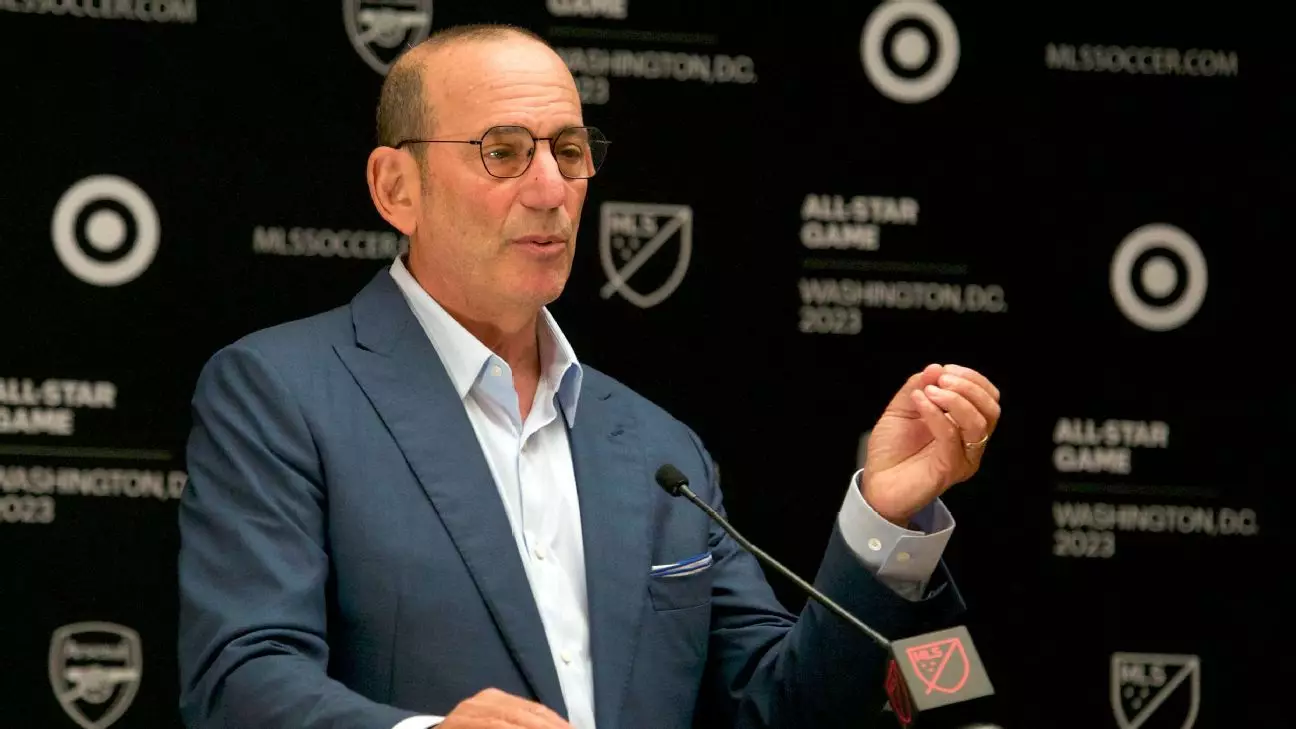In recent discussions among key figures in football, the issue of an overcrowded global calendar has taken center stage. Major League Soccer (MLS) President Don Garber has emphasized the urgency of addressing the evolving landscape of international football, particularly in light of recent antitrust lawsuits pending before the European Commission. As LaLiga’s president Javier Tebas has argued that FIFA’s 2025 Club World Cup should be cancelled, this raises critical questions about the sustainability of an expanding football schedule. The continuing rise of international tournaments, alongside a packed club season, illustrates the growing noise around players’ health and the sport’s overall integrity.
Garber, expressing his concern, suggested that the current trajectory could be detrimental to the players and to the sport as a whole. He noted the potential for escalating fixtures to lead to burnout among athletes, risking injury and diminishing the enjoyment of the game itself. This is not just a concern for North American soccer but has widespread ramifications across the globe. The cumulative pressure from players and their unions, particularly FIFPRO Europe, underscores a growing consensus that significant change must happen—before the sport reaches a breaking point.
The announced 32-team Club World Cup and its timeline—scheduled against the backdrop of a revamped Champions League and an enlarged World Cup in 2026—paints a picture of a footballing landscape filled with competitions vying for players’ time and fans’ attention. The typical club seasons in Europe and North America serve as a launching pad for these tournaments, illustrating the thinly stretched nature of player involvement. With FIFA’s planned tournament running concurrently with other significant events, including the Concacaf Gold Cup, the potential for calendar clashes and player fatigue raises profound questions.
Garber articulated the need for more consultation among governing bodies and leagues to optimize the global calendar. His view suggests that disruption, while often painful, can sometimes catalyze essential dialogues that drive positive changes for the sport. As the most influential figures in football consider Garber’s observations, the momentum generated by lawsuits and player advocacy for reform may lead to more collaborative decision-making among leagues.
Players themselves are becoming increasingly vocal about their workloads. Echoing the sentiments of former Barcelona defender Gerard Piqué, the alarming frequency of games leaves athletes struggling to manage their physical well-being. The reality that many players face a relentless schedule of matches every few days underlines the urgency to reevaluate the current structure of competitions. If FIFA and league leaders do not heed these warnings, they risk significant injuries and a drop in competitive performance levels.
Suggestions for reducing the number of teams in leagues, such as moving from 20 to 16, exemplify the potential for rethinking traditional formats. Such changes could alleviate the pressure on players while still maintaining robust competitions that fans cherish. The focus on quality over quantity may offer a viable pathway forward, ensuring that athletes are not only performing at their best but also have the opportunity to rest and recuperate.
As the world of football stands on the brink of critical decisions, embracing collaboration among leagues, players, and governing bodies offers a promising avenue toward the future. Garber’s call for joint discussions is timely, especially as the frameworks for significant tournaments are under scrutiny. The ongoing dialogue needs to transcend national borders, allowing for a collective rethink about the scheduling and organization of competitions.
The embrace of transparency and data-informed decision-making can pave the way for more streamlined and player-centric calendars. By prioritizing player health and the integrity of the game, governing bodies must actively engage all stakeholders. Only through mutual understanding and shared objectives can football hope to emerge from the current turmoil into a more sustainable and exciting future—not just for athletes but for fans around the globe who love the beautiful game.

